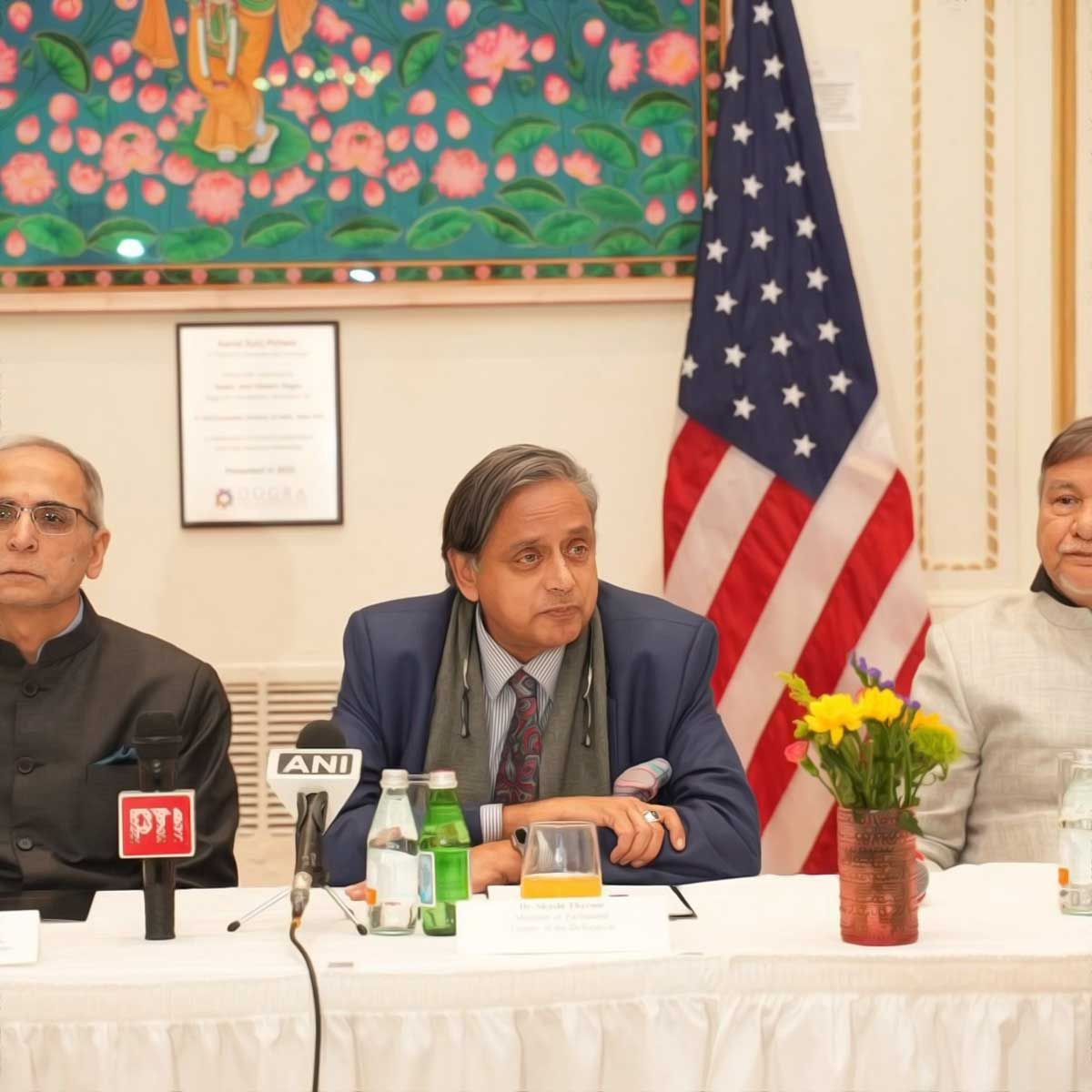More Coverage
Twitter Coverage
Satyaagrah
Written on
Satyaagrah
Written on
Satyaagrah
Written on
Satyaagrah
Written on
Satyaagrah
Written on
JOIN SATYAAGRAH SOCIAL MEDIA
‘Breast Tax’ to cover their breasts: A False Story to Attack Hindus based on a pseudo-historical legend
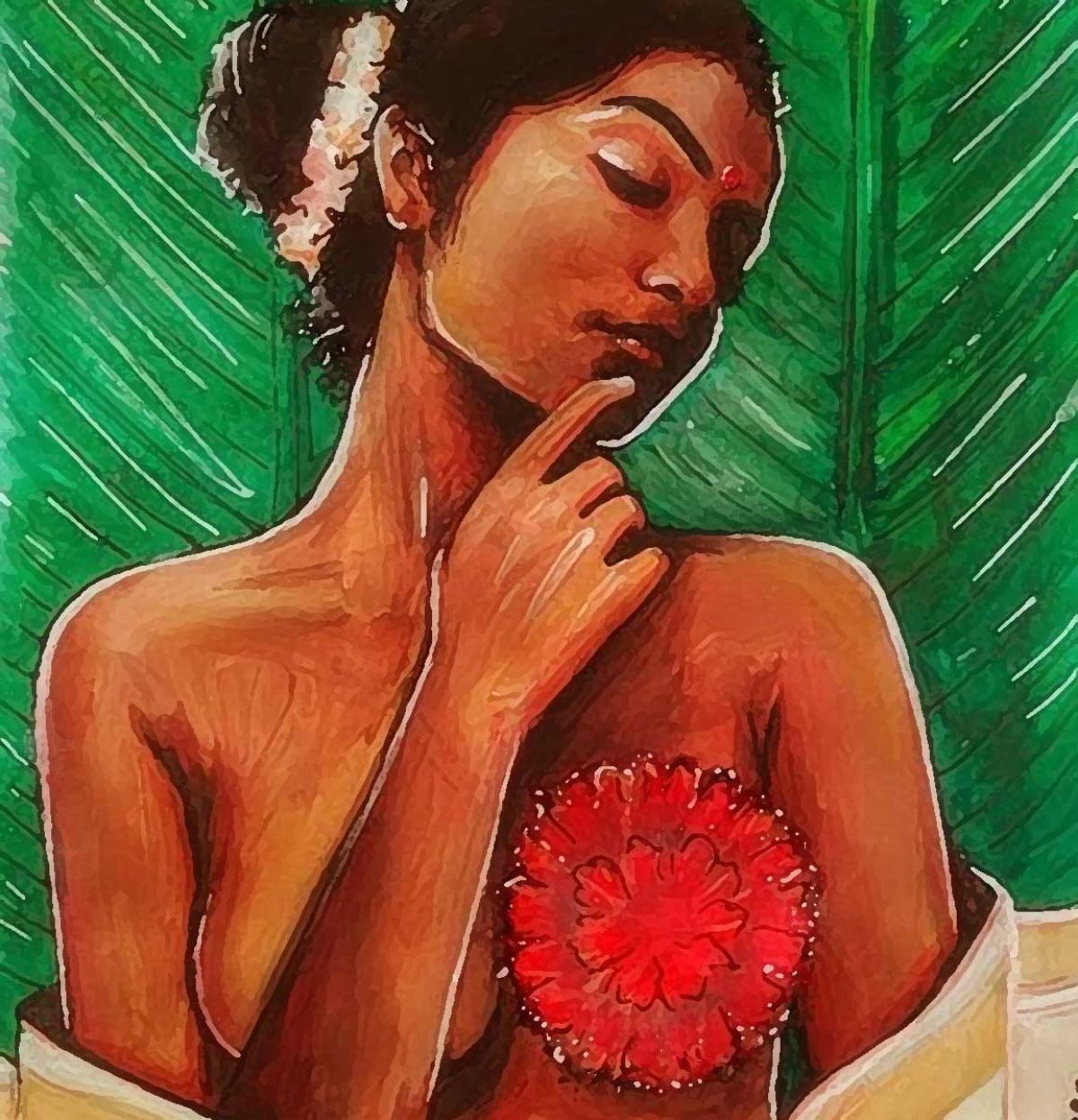
Several months ago, BBC had published an article based on a pseudo-historical legend. The article states Avarna (low caste women) from Kerala were not allowed to wear upper garments and used to pay ‘breast tax’ to cover their breasts. The article also states that, to protest this, a low caste Avarna woman named Nangeli from Ezhava caste chopped off her breasts and presented it to the tax officials. It was later published in ‘The News Minute’ as well by Supriya Unni Nair, when CBSE removed this section from its social science textbook.
The main person who made this myth popular is an ‘artist’ named T Murali (calls himself as Chithrakaran). He claims that he found this story while going through a local magazine written by a person from Cherthala. However, some searching on the web will show us that this person runs a blog full of crass anti-Hindu propaganda and paintings and full of sexist remarks which ironically many ‘progressive’ anti-Hindu liberals and feminists claim to be the way of upper caste Hindus who suppressed others. For example, he insulted Sarasvati Devi in the most disgusting manner in one of his blogs in Malayalam.
Here is his blogpost from 2009 reflecting his sick perverted mentality – chithrakarans.blogspot.in
He says:
| “സമൂഹത്തിലെഭക്തിഭ്രാന്ത്കൂടിവരുന്നസാഹചര്യ ത്തില്സരസ്വതിയുടെമുലകളുടെമുഴുപ്പ്, സരസ്വതിഉപയോഗിക്കുന്നസാരി, ബ്രായുടെബ്രാന്ഡ്തനെയിം, പാന്റീസ്, തുടങ്ങിയവസ്തുതകളെക്കുറിച്ച്ചിന്തിക്കുന്നത് പ്രസക്തമാണെന്ന്ബോധോദയമുണ്ടായിരിക്കുന്നു.” |
Translation:
“Since devotion to Gods (bhakti) is becoming popular (he calls it as ‘madness’) in the society, thought that it is relevant to think about the breast size of Sarasvati, the brand name of bra and panties which she uses etc”
Another statement from the blog by the ‘artist’ T Murali (Chithrakaran):
| “ബ്രാഹ്മണന്റെമഹാവിഷ്ണുഎ ന്നകുണ്ടന്ദൈവത്തിന് (മോഹിനിയാട്ടക്കാരി/രന്)എത്രലിംഗമുണ്ടെന്നും, എത്രയോനിയുണ്ടെന്നുംചി ത്രകാരന്സന്ദേഹിച്ചുകൊണ്ടിരിക്കു ന്നസത്യംകൂടിവെളിപ്പെടുത്തട്ടെ” |
Translation:
“Let me also reveal that Chitrakaran (addressing himself) has been thinking about how many penises and vaginas the gay God Vishnu of Brahmins has.”
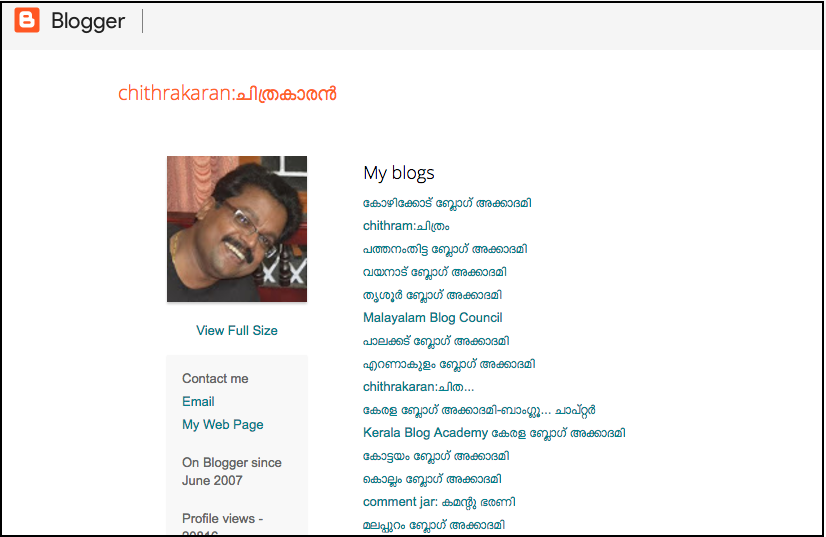 Blogger Profile of T Murali (alias Chithrakaran), an Adarsh Liberal who spends his free time thinking about breast size and bra/panty brand of Sarasvati Devi, and penises and vaginas of ‘Gay’ Bhagwan Vishnu |
His venomous anti-Hindu hate and perverted mind is visible from the statements from his blog. Does this show that the ultra-liberal social activists accusing Hindu society of oppressing people with sexist remarks are actually projecting their own sick minds on others – “If we wallow in the gutter, so must the world!”
If this pervert had written in a similar vein about the icons of the Abrahamic faiths – Islam and Christianity, he would have been dead or in hiding by now. Still, liberals claim that it is the Hindus who are intolerant!
Anyway, we shall now refute his claim of Nangeli chopping off her breasts. First of all, how could a woman endure the pain after cutting off her breasts and then go and present her breasts to the tax inspector? If at all we consider her to be a brave woman like many other women this country has produced, there are also zero historical documents supporting this myth, apart from local fable. But as seen earlier in our article about Cheraman Perumal, local fables without any facts or documents for support cannot be accepted as historical evidence as it takes only a small amount of time for what is just a story to become a historical fact.
Another fact is that in reality all women of Kerala never really covered their breasts until early 20th century (except for few royals and other aristocrats who had access to luxurious dress)
Dutch representative William Van Nieuhoff in 17th century writes about the attire of Ashwathi Thirunal Umayamma Rani, then queen of Travancore:
“… I was introduced into her majesty’s presence. She had a guard of above 700 Nair soldiers about her, all clad after the Malabar fashion; the Queens attire being no more than a piece of callicoe wrapt around her middle, the upper part of her body appearing for the most part naked, with a piece of callicoe hanging carelessly round her shoulders.”
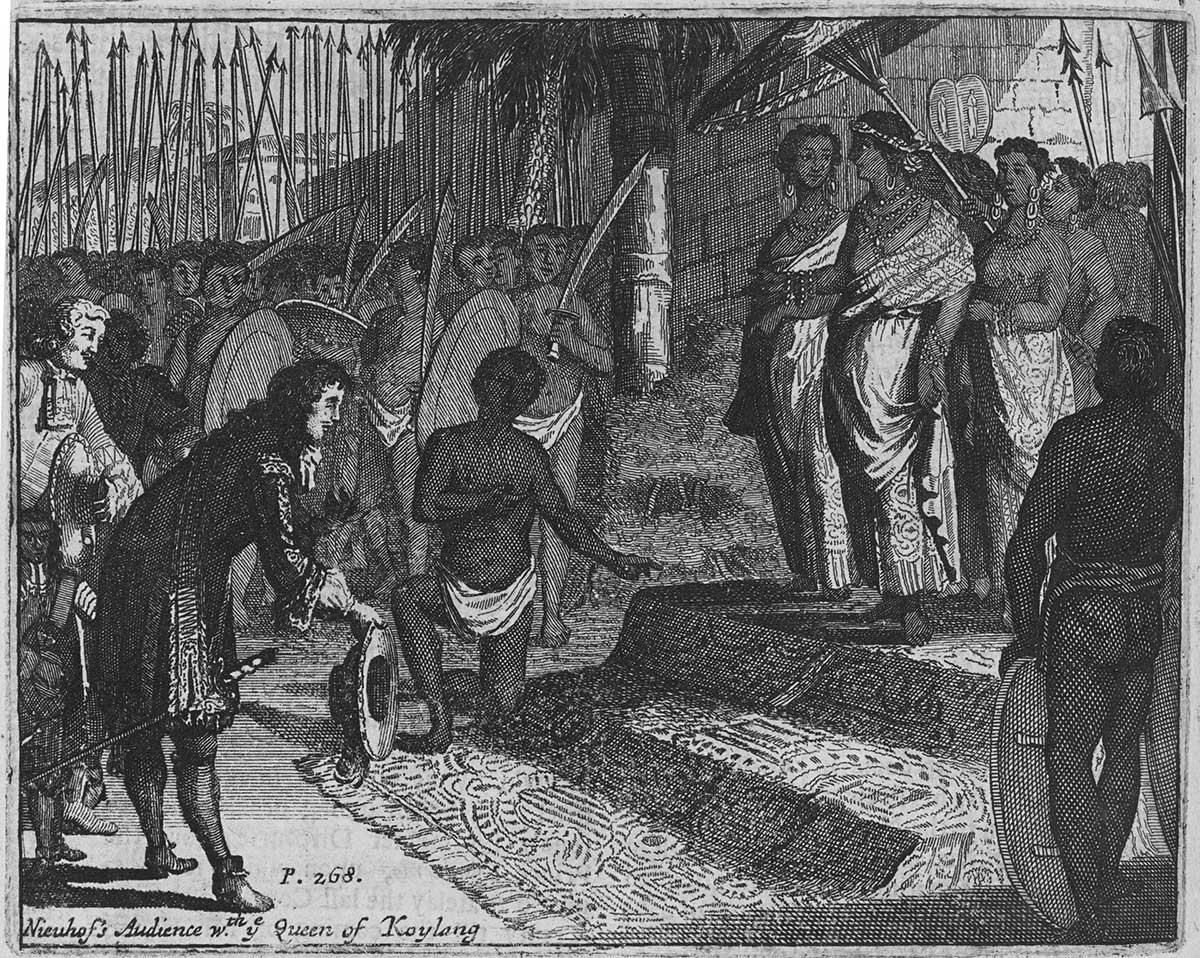 Dutchman William Van Nieuhoff meeting queen of Travancore in 17th century; Image Source |
The above image is the 17th century painting of Nieuhoff introducing himself in front of Umayamma Rani. We can see her being topless along with her topless women attendants. Even the men of Kerala never wore any upper garment just like the soldiers of the queen seen in the image.
Kerala had a good tropical climate, and there was no need of covering oneself with so many garments. Traditional attire of old Kerala men were mundu or lungi alone, without any shirts. Similar case existed in other regions like Bali and Sri Lanka which had similar climate and people had less clothings including women. Balinese women went topless until few decades ago. It was only after the Islamic invasions and introduction of Victorian morals (morals of the west) that “covering the body more” argument came into being.
The article published in The Newsminute also says, “In 1813, the Travancore court Dewan Colonel John Munro threw them a carrot and issued an order saying Nadar women who converted to Christianity could cover their chests with an “upper cloth”. The royal court opposed this and the women were only allowed to wear a long blouse that the Muslims and Syrian Christians of the time wore.” But in reality, the church with the British support had all the authority of opposing the orders of the Travancore Raja as seen from the documents of Swathi Thirunal’s period, which also claims that the early demise of Swathi Thirunal was because of the pressure he had to face for which one of the reasons was the intervention of the British in his administration and cultural issues. So this shows that the western judges had passed a judgment according to their morals which was opposed by the administration of Travancore as it was not their tradition and not a caste issue as stated by these liberals.
Even after reading all this, if anyone wants to argue that upper caste Hindus forbade lower caste women from wearing upper garments then here are few images of topless upper caste Nambuthiri Brahmin and Nair women.
A Nair woman from Malabar (Kerala) by Klein & Pearl Studio, Madras, early 20th century.
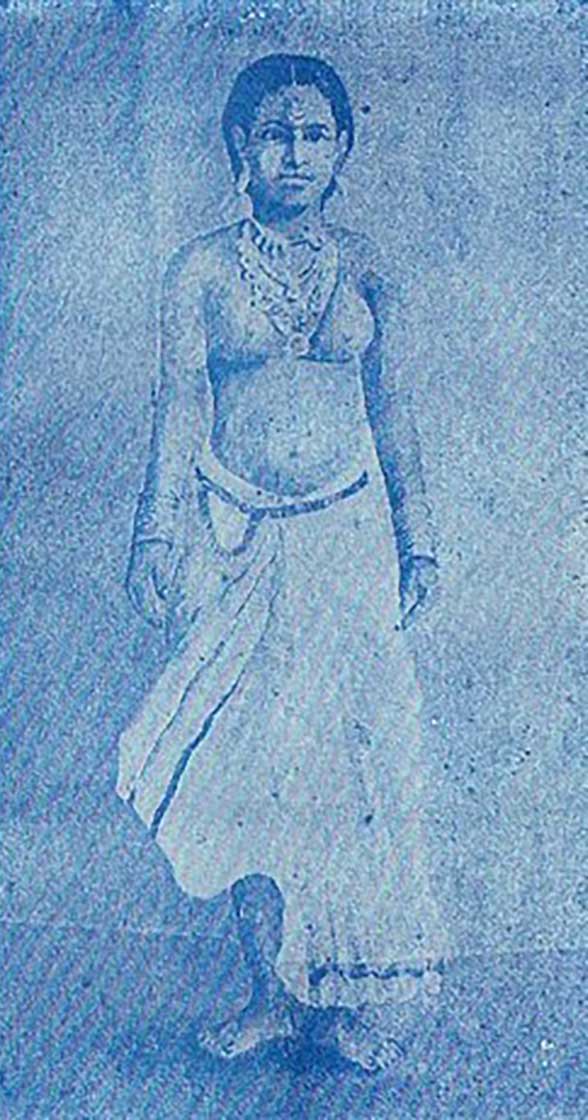 Topless Nambuthiri Brahmin lady from a Malayalam book by Kanippayyur Shankaran Namboodiripad |
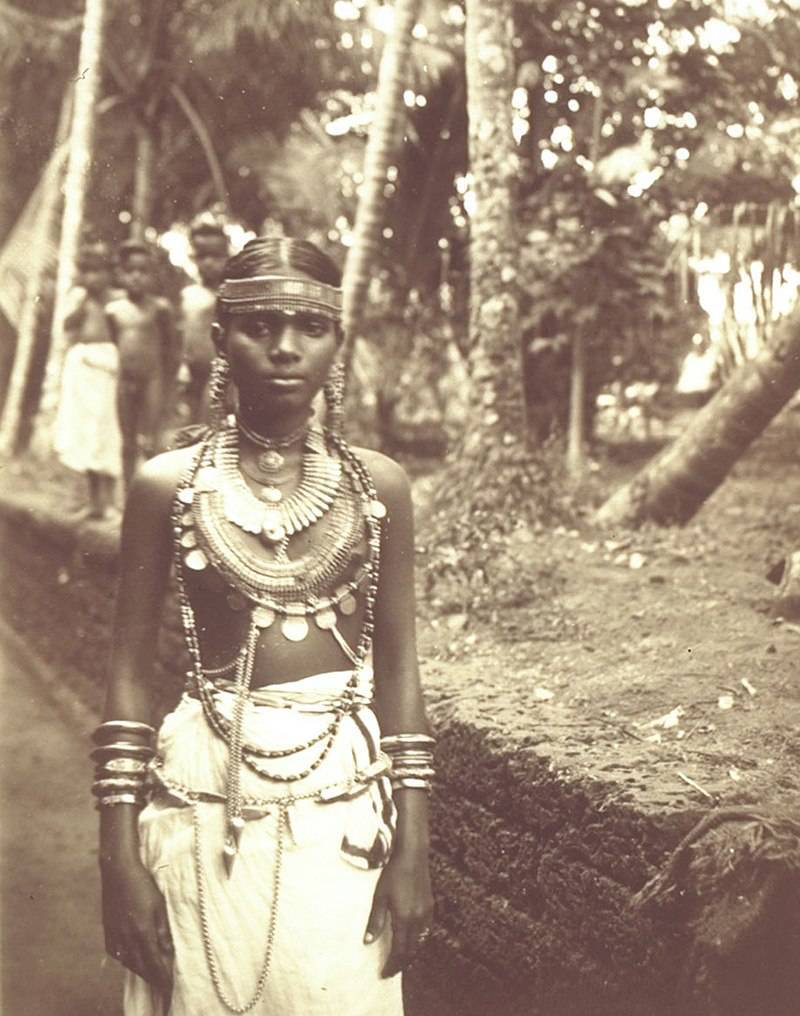 A Nair woman from Malabar (Kerala) by Klein & Pearl Studio, Madras, early 20th century |
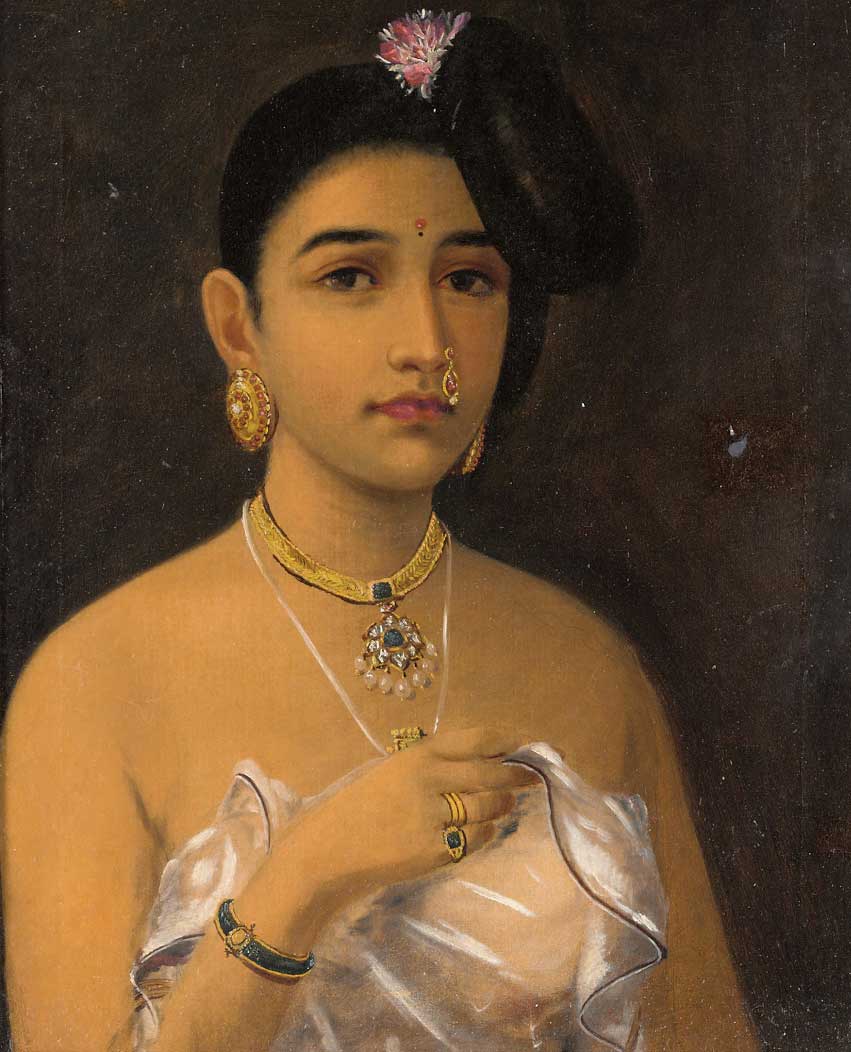 Painting ‘Malabar Beauty’ by Raja Ravi Varma (she wears no upper garment, but covering with a cloth just as model) dated to 19th century |
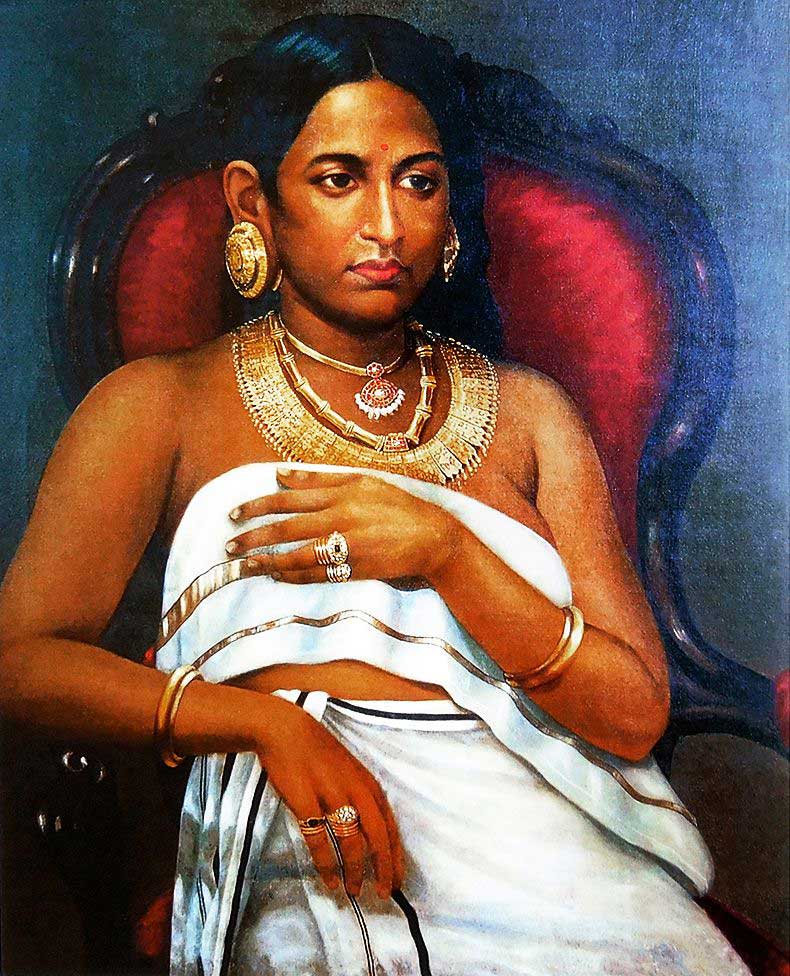 Painting of the 19th century Junior Queen of Travancore Bharani Thirunal Rani Parvathi Bayi by Raja Ravi Varma, she’s again covering her breasts with a mere cloth without any garments |
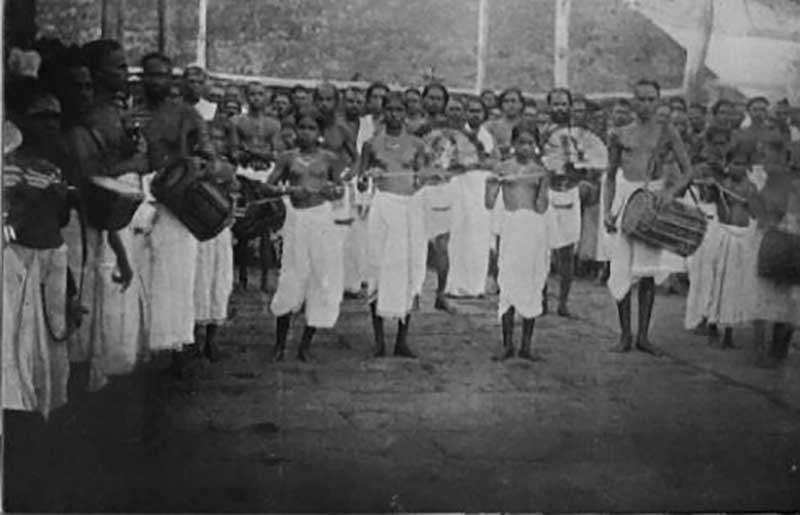 Nair girls in a temple procession, from the book ‘The Cochin Tribes and Castes’ by L. K. Anantha Krishna Iyer |
On the other hand there were many rich Avarnas who had access to upper garments, contradicting the claim of these liberal activists. This can be seen in the images given below:
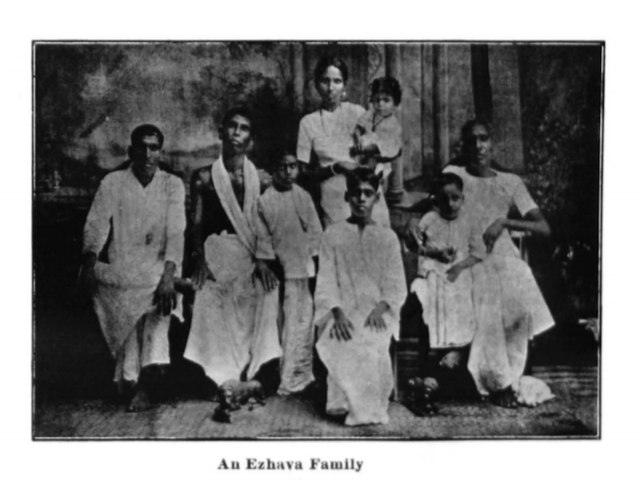 Ezhava family from an early 20th century book titled ‘Glimpses of Travancore’ by N. K. Venkateswaran |
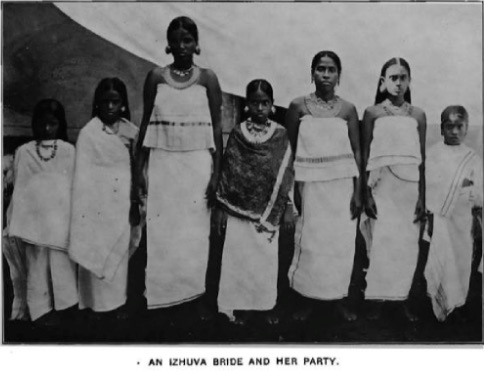 Ezhava girls, from the book by L. K. Anantha Krishna Iyer |
So the divide was between rich and poor and not between upper castes and lower castes like the anti-Hindu brigade claims. Even after covering bosoms became popular, it was only worn by certain rich people who had access to all the luxury, regardless of caste, and those who preferred it.
Thus this shows that liberals with perverted mind like T Murali who are nothing but rabid Hinduphobes and sepoys have been creating stories of their own in the past few decades, and are also obtaining help from Western international media like BBC who support their stories without proper research, in order to demonize Hindus and continue the colonial tradition of ‘atrocity literature’ to shame the Hindus.
Twitter user Armchair Groundworks with handle @Kuvalayamala too has exposed same lie in his long thread.
|
|
|
|
References:
 Support Us
Support Us
Satyagraha was born from the heart of our land, with an undying aim to unveil the true essence of Bharat. It seeks to illuminate the hidden tales of our valiant freedom fighters and the rich chronicles that haven't yet sung their complete melody in the mainstream.
While platforms like NDTV and 'The Wire' effortlessly garner funds under the banner of safeguarding democracy, we at Satyagraha walk a different path. Our strength and resonance come from you. In this journey to weave a stronger Bharat, every little contribution amplifies our voice. Let's come together, contribute as you can, and champion the true spirit of our nation.
 |  |  |
| ICICI Bank of Satyaagrah | Razorpay Bank of Satyaagrah | PayPal Bank of Satyaagrah - For International Payments |
If all above doesn't work, then try the LINK below:
Please share the article on other platforms
DISCLAIMER: The author is solely responsible for the views expressed in this article. The author carries the responsibility for citing and/or licensing of images utilized within the text. The website also frequently uses non-commercial images for representational purposes only in line with the article. We are not responsible for the authenticity of such images. If some images have a copyright issue, we request the person/entity to contact us at satyaagrahindia@gmail.com and we will take the necessary actions to resolve the issue.
Related Articles
- Busting the myth of “glories” of the Mughal Empire and its economic superiority as fantasized by Indian Marxist and Liberal historians
- To be on the wrong side of history is a choice – How 21st-century invaders are capturing Chhatrapati Shivaji’s forts the way even Mughals didn’t and attempting to reclaim an invader identity unapologetically
- Narasimha Anjaneyar temple demolished in Tamil Nadu despite devotees best efforts to save it, places of worship of other religions are spared
- Another tale of grooming jihad involving a young Christian girl and her much older Muslim husband from Kerala: Resistance to convert to Islam led to the leak of her intimate videos, even Christian-leaning media downplayed it
- Mohammedan needs to 'take back Babri Masjid', ISIS magazine states that Hindus are ‘filthy urine drinkers’ who learned civilized living from Muslims
- The true face of Saba Naqvi: How the ‘secular journalist’ supported Muslims acts of violence and fanaticism on Ram Sevaks in Sabarmati Express burning leading to gruesome killing of some 59 innocent people, including 25 women and 15 children
- If Islam Is a Religion of Violence, So Is Christianity – the scientifically barbaric and intolerant religion
- Islamic revivalist movements in Bharat and Deoband’s link to Taliban
- Hinduphobia To Hindumisia: Advancement of Western Academia for Hindu Hatred
- 16 Jan to 22 Jan - 2022 - Continuing attacks on Hindus: bulletin roundup of persecution, discrimination, and hate crimes against Hindus
- Embedded Hindumisia attitude of IndiaSpend is exposed further due to their faulty 'Hate Tracker' trying to show they are 'Neutral'
- Missionaries cannot have freedom of expression to vilify others’ religious beliefs - Madras HC refused FIR quash on Catholic priest’s anti-Hindu hate speech
- While Shaheen Bagh showcases its latest artwork for anti-CAA 'protest', it also reveals its true nature of Islamist supremacy and Hinduphobia: Adds image of Hindu Swastika being ‘smashed’ and disintegrating
- ‘Casteless Hindu’ is Not a Paradox. It is The keystone of ‘Ghar Wapsi’ and Hindutva
- 23 Jan to 29 Jan - 2022 - Hindus under attack: Bulletin roundup of persecution, discrimination, and hate crimes against Hindus























